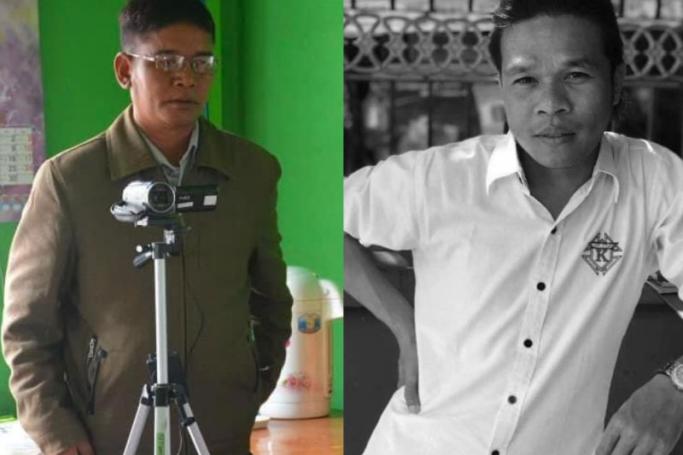On 2 November, the International Day to End Impunity for Crimes against Journalists, NGO Free Expression Myanmar (FEM) remembers nine journalists murdered in Myanmar.
Four were killed since the February 2021 coup, the other five were murdered prior to the coup.
The four killed since the coup were: photographer Soe Naing, killed between 10-14 December 2021 while in military custody; journalist Sai Win Aung killed on 25 December 2021 by a military artillery strike; journalist Pu Tuidim, tortured and killed on 8 January 2022 while being used as a human shield in military custody; photographer Aye Kyaw, killed on 30 July 2022 while in military custody.
The five murdered prior to the coup were: Soe Moe Tun, killed in 2016; Aung Kyaw Naing "Par Gyi,” tortured to death in military custody in 2014; Kenji Nagai, shot and killed reporting on the 2007 Saffron Revolution; Tha Win and Hla Han, tortured to death for their brave news headline in 1999.
Torture and sexual violence
While killing is the most extreme form of media censorship, the military has also injured, tortured, and sexually abused many journalists since the coup began.
Photojournalist Kaung Sett Lin and videographer Hmu Yadanar Khet Moh Moh Tun were both seriously injured after being hit by a truck that was driven by soldiers into protesters on 5 December 2021.
Military officials used sexual violence against journalists being held in custody, including by gang raping journalist Ye Mon, threatening journalist Hanthar Nyein with rape, and reportedly using sexual violence against women journalists.
Many more journalists like Nathan Maung have reported widespread torture.
Crimes committed
There can be no justification for killing, beating, or torturing a journalist under any circumstances. Rather, there is clear prima facie evidence to suggest that a crime has been committed in all of these cases.
Summary executions, causing harm, torture, and sexual assaults are all crimes under Myanmar’s domestic law (Penal Code articles 300, 320, 330, 354, 375, 509), including if they are perpetrated by members of the military (Myanmar Army Act article 66f). They are also prohibited under international human rights law.
Furthermore, the frequency and seriousness of crimes committed against journalists show that these are not individual isolated cases but rather part of the military’s gross and systematic human rights violations.
War crimes
Crimes committed against journalists since the coup started may also amount to war crimes.
International humanitarian law, including the Geneva Conventions, specifically includes journalists within the definition of civilians. Attacks directed against civilians, spreading terror, murder, torture, corporal punishment, rape and sexual violence, and arbitrary deprivation of liberty are all war crimes.
These war crimes are prohibited in both international and non-international armed conflicts.
Ending impunity
FEM says that remembering each case of impunity is a sign of respect for journalists.
Their journalism ensures the public is aware of what is happening across Myanmar. Remembering is also a step towards ensuring that perpetrators will one day be held accountable for their crimes and brought to justice before the Myanmar people.
According to FEM, the military-controlled police and courts cannot and will not conduct investigations and bring perpetrators to justice. National remedies do not exist and must be considered exhausted.
Therefore, international stakeholders including international courts and international mechanisms should act to hold perpetrators to account. Foreign courts and foreign prosecutors should use any available universal jurisdiction provisions to hold perpetrators to account and provide justice to the Myanmar people.
Recognising and holding an International Day to End Impunity for Crimes against Journalists on 2 November each year was adopted as a resolution by the United Nations General Assembly at its 68th session in 201












